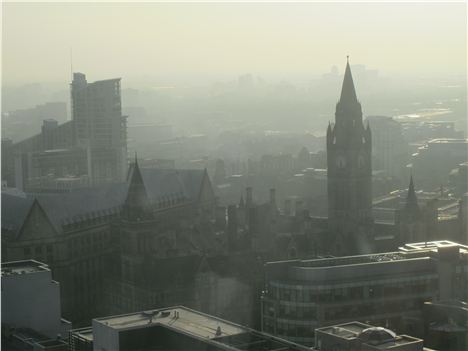IF you're thinking of buying a flat, then you'll look at its location, the number of bedrooms, the size, the style of kitchen, the bathroom, how it’s heated and, of course, the cost. This information and more (e.g. gardens, transport links, amenities, schools) is listed by the estate agent in the property description.
As part of that final price, you can agree to ask the vendor to start the process of extending the leasehold because you usually have to own the flat for two years before you can do this.
However, there's an important element that estate agents often don't mention up front that is likely to hit you hard in the pocket; namely, whether a flat has a leasehold tenure and how many years remain before it expires.
“Estate agents are obliged under consumer protection legislation to advertise where a property has a leasehold tenure and state the unexpired term of the lease,” says Mark Hayward, Managing Director of the National Association of Estate Agents, the body established 50 years ago to uphold good practice and standards in the industry.
“We strongly recommend to estate agents that they advertise this information clearly, for instance on their websites. If they do not, they are breaking the law and could be prosecuted by trading standards. It’s an inexpensive (about £10) and quick process for estate agents to download a property’s leasehold information from the Land Registry and advertise it. There’s really no excuse,” Mark told Confidential.
There are around two million flats with leasehold tenure status in the UK, so it’s likely this is what you’ll be purchasing. This means that somebody else – the freeholder – owns the building and land.
When you buy a leasehold flat, you maintain its insides and pay a service charge (in Manchester the going rate seems to be about £700-£800 per year) for the freeholder or landlord to maintain the outsides (e.g.communal landings, lights, gardens). Buildings insurance and sometimes ground rent is included in this service cost.
Many flats built in the 1960s, 70s and 80s have a 99-years’ lease (houses often have ten times the leasehold). Once the length of the lease starts to run down, the question of extending it rears its head.
This is because when it comes to selling, a short leasehold flat can be hard to shift. Firstly, mortgage lenders - e.g. banks, building societies - get jittery about lending money to buy a flat with a short lease because it’s seen as a risk. So, the only people who could buy your flat are cash buyers and your market shrinks. Secondly, the shorter the lease becomes, the more expensive it is to extend and this could put off purchasers.
So, if a flat in a block built in 1983 is valued at £100,000, and has a ground rent of £200, it could cost between £8,000-£9,000* to extend the leasehold plus costs (conceivably another £1,500- £2,000 for the freeholders’ legal and surveying costs). At all times - whether you are a vendor or a purchaser looking to extend a leasehold, you should take legal advice (unfortunately, another cost).
Yes, that’s right, the person extending the leasehold on a 30 years old flat has to pay out around £11,000, in this example.
Once a lease drops to 80 years or fewer, the freeholder is entitled to an extra 50% of the flat's 'marriage value' on top of the usual lease extension price. Marriage value is the amount of extra value a lease extension adds to the property.
Now, the question is: who pays?
Two scenarios are:
(a) The vendor may have started the process of extending the lease to make it more attractive to a purchaser (as long as they have owned the flat for at least two years) seeking to recoup the outlay in the agreed purchase price.
(b) The vendor may have decided not to extend the leasehold and taken this into consideration with the asking price.
If you believe neither to be the case, then you can use the leasehold length as leverage in negotiating a final price.
As part of that final price, you can agree to ask the vendor to start the process of extending the leasehold because you usually have to own the flat for two years before you can do this.
You can wait until you have lived in the flat for two years, mindful of the fact that the price to extend the leasehold will increase. The leasehold will be shorter, the value of the flat may have increased and the ground rent may have increased - three factors used to determine the cost of extending the leasehold (plus the marriage value).
Another scenario is that you don’t extend the lease and take your chances when it comes to selling in a few years’ time but there’s a chance you’ll have to take a severe financial hit.
You should, of course, take legal advice when purchasing a flat with a leasehold. For more information about leaseholds, visit here.
In the meantime, ask the estate agent to provide you with the leasehold information before you get too excited about a property that could be out of your financial reach.
*This figure was arrived at by using the Leasehold Advisory Service’s on-line calculator, which provides a general guide to reviewing costs and is not the actual price.










